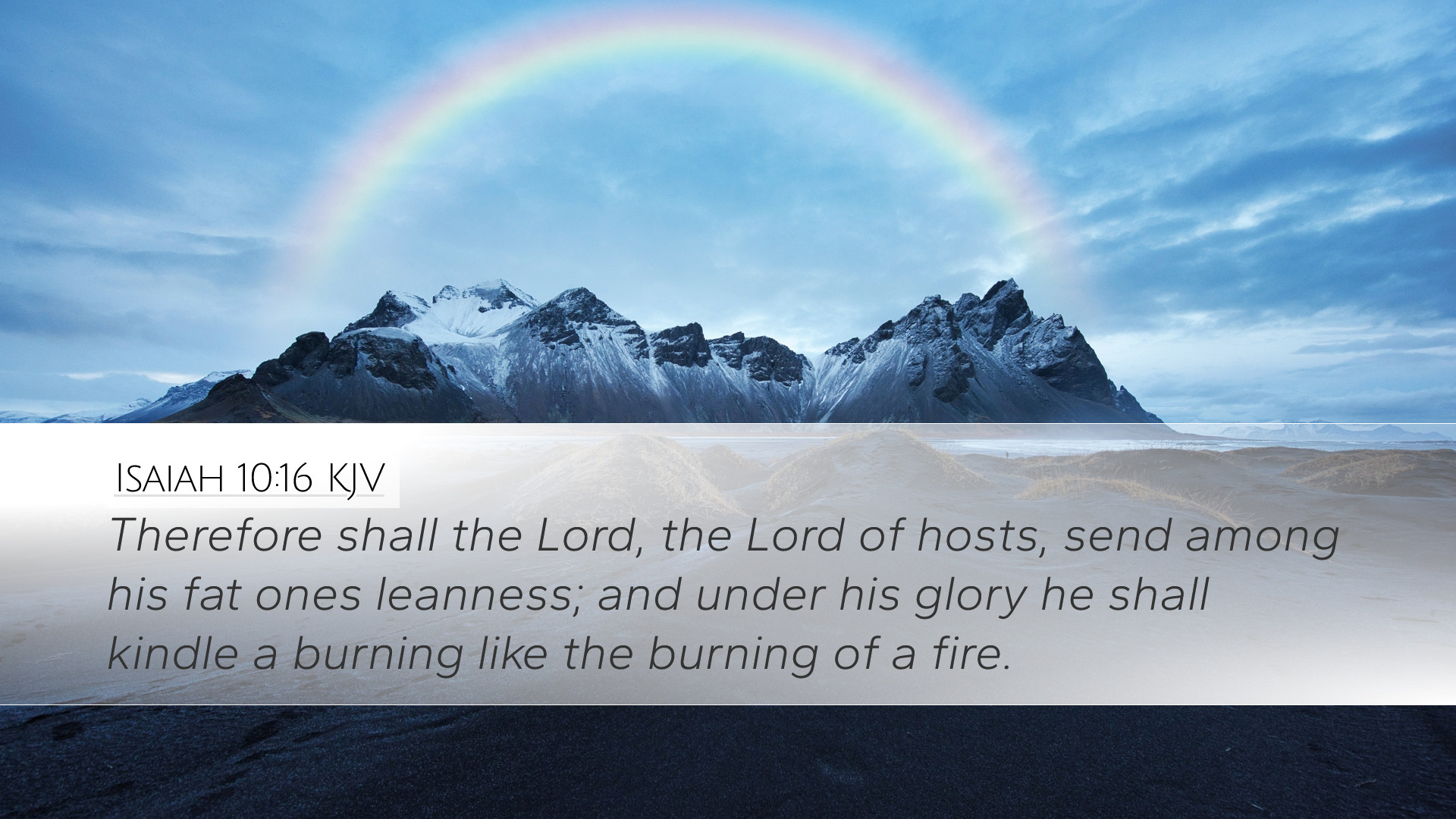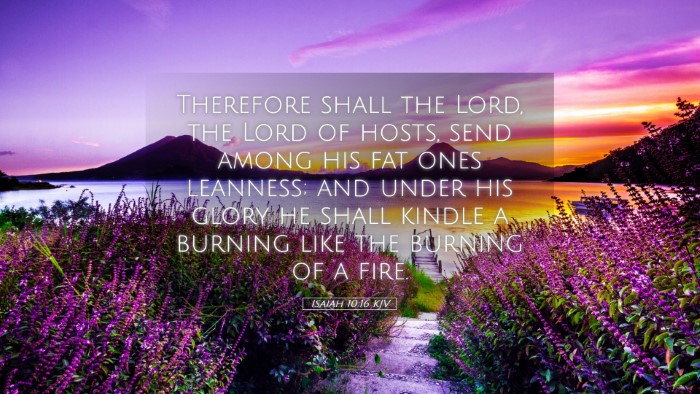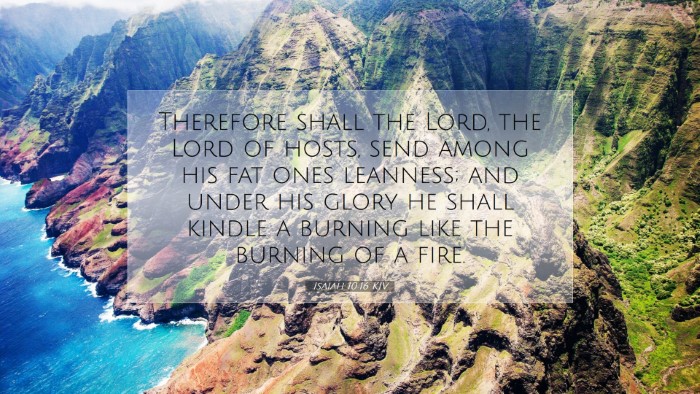Commentary on Isaiah 10:16
Isaiah 10:16 states: "Therefore, the Lord, the Lord of hosts, will send leanness among his fat ones; and under his glory he shall kindle a burning like the burning of a fire." This verse encapsulates a profound warning of judgment from God against those who have rebelled or grown complacent in their spiritual lives. The context of this proclamation serves as a backdrop to understand God's righteous indignation and His desire for genuine worship and humility.
Contextual Overview
The chapter is a part of a larger discourse wherein Isaiah delivers God’s judgment upon Israel and surrounding nations due to their pride and reliance on their own strength rather than the Lord. In the preceding verses, God speaks about His instrument of judgment, the Assyrians, who will be used to fulfill His divine purposes, although they themselves are ungodly.
Theological Insights
This passage is rich with theological implications that are relevant to contemporary believers:
- Divine Sovereignty: The phrase "the Lord, the Lord of hosts" is a reminder of God's sovereign authority over all creation. He orchestrates events, using even pagan nations to carry out judgment for His people’s sins.
- Judgment and Consequence: The imagery of sending "leanness" speaks to the stripping away of excess and comfort, a divine purging that serves both as a form of discipline and as preparation for restoration.
- The Fire of Purification: The notion of kindling a burning reflects God's purifying process, much like how fire refines gold. It is through trials and challenges that believers are often refined, teaching dependence on God and fostering spiritual growth.
Exegesis of Key Phrases
The language in this verse is particularly metaphorical and illustrative. Each significant phrase carries depth and deserves further exploration:
- "Send leanness": This phrase emphasizes a state of want or deprivation that comes as a consequence of spiritual neglect. Albert Barnes highlights that this leanness refers to both physical and spiritual desolation, indicating a disconnect from the life-giving resources of God.
- "Among his fat ones": This refers to those who are complacent and overly comfortable in their riches and status. Matthew Henry remarks on the irony that those who are seemingly abundant are often the very ones who are most at risk of God's wrath.
- "Under his glory": These words remind us that God's glory is not only a source of awe but also a standard of righteousness. Adam Clarke elucidates that God's glory is often clouded by human pride and sin, which leads to divine intervention.
- "Kindle a burning like the burning of a fire": The imagery of fire in the Scriptures often signifies cleansing and judgment. Here, Clarke notes that it represents God igniting a fervor that brings conviction to the hearts of His people, pushing them towards repentance.
Practical Applications
For pastors, theologians, and students of Scripture, Isaiah 10:16 offers several key applications:
- Awareness of Spiritual Complacency: Believers are called to examine their lives for complacency and reliance on their own strength rather than on God’s provision.
- Understanding God’s Discipline: It is essential to view trials as opportunities for spiritual growth and refinement rather than mere hardships.
- Importance of Holiness: The passage emphasizes the need for personal and communal holiness, urging congregations to pursue righteousness that reflects God’s glory.
Conclusion
Isaiah 10:16 stands as a timeless reminder of God’s sovereign control over human affairs and His righteous judgment. Through the lenses of historical context and theological depth, believers are invited to reflect on their relationship with God. The call is to acknowledge the peril of spiritual pride and to submit to the purifying fire of God, ultimately leading to a more sincere and fruitful walk with Him.


